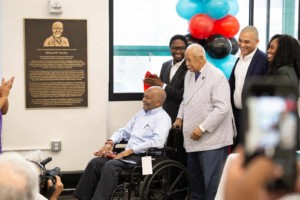Good Work: What Did You Accomplish This Week?

After college I started calling my parents on Sunday night. My dad would start the conversation by asking, “What did you accomplish this week?” Simple but frustrating, it called me to account. It made me ask if the world was a better place by an appreciable amount. Had the week of meetings and the phone calls left anything profound? His question caused nervous anticipating all week, but it caused me to consider what I was doing, why I was doing it and what I was really accomplishing. We still talk on Sunday nights but he doesn’t ask the question as often as he used to. I have learned to ask the question of myself.
Accountability is a gift that is seldom appreciated. Associated with standards-based reform in American education is a push for more performance accountability for schools and educators. But even the discussion of accountability creates fear and loathing. Some of those concerns are valid given a weak set of metrics and inexperience putting them to use to drive improvement.
Rather than a curse, accountability should be a gift that comes with freedom and responsibility. In education that means more site-based decision making. With common performance expectations schools generally have more latitude and teachers have more curriculum development responsibilities. Accountability should be granted to the responsible and the competent–a high bar for the authorizer. It signals that the work matters and provides room to strive and grow. Accountability is not about taking orders; it is about taking ownership.
As they grow, children constantly seek more freedom. They want to walk across the street, then stay at home alone, and then take the car on a date. Parents add measures of accountability to insure safety and teach responsibility. At work, most people seek freedom and added responsibility (or at least the additional pay that goes with it). Employers add measures of accountability to safeguard assets and insure performance. The accountability of citizenship is as real as it is at home or at work, but there are no bosses or parents to enforce your responsibility to vote, participate and contribute on a local, state and national basis. You must take up the responsibility and hold yourself accountable to our founding ideals and the greater good required by citizenship.
You have been given gifts and talents. It is your job to put them to good use. Accountability means showing a return on investment when called to account. It begins with high expectations, demands initiative, requires follow through, and ends with results. To call anyone else to account, you must demand a great deal of yourself. Be accountable to your employer, to your community, to yourself. Put your gifts to good use.
Good Work is a Sunday series based on a unpublished journal entries written while serving as a public school superintendent in the 1990s. If you have story about finding or living mission-related work, send us a note.






0 Comments
Leave a Comment
Your email address will not be published. All fields are required.